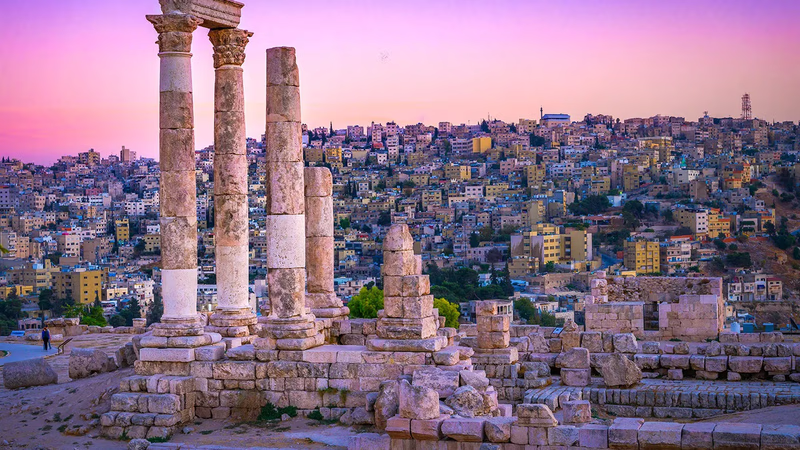
How does Jordan"s strategic position enhance its role in the Middle East trade platform?"
Jordan stands as a pivotal player in the Middle East trade platform, strategically positioned as a hub in West Asia for import and export activities. The economy of Jordan benefits significantly from its geographic location, bordered by countries such as Iraq, Saudi Arabia, and Israel, which facilitates robust regional trade dynamics. As part of the Middle East market, Jordan offers verified exporters and importers access to a comprehensive B2B marketplace in Asia, enhancing commodity trade across the region. The political structure of Jordan, characterized by a stable monarchy, supports its open foreign policy aimed at fostering trade relations with neighboring countries like Oman, Lebanon, and Egypt, as well as more distant partners including Turkey and Pakistan. This openness is crucial for trade advertising platforms and business networking in the Middle East, encouraging a dynamic flow of goods and services. Jordan"s market overview reveals a growing demand for regional product listings, with a focus on providing market insights within the Middle East. The emphasis on supply chain solutions in Asia reflects the increasing need to streamline logistics for efficient cargo delivery to Jordan. Price competitiveness remains a key factor, with businesses exploring cost-effective shipping options from countries such as Armenia, Georgia, and Azerbaijan.
For companies looking to expand their reach, establishing a presence in Jordan can offer strategic advantages. The country"s engagement with trade partners like Qatar, Bahrain, and the United Arab Emirates positions it as a critical node in the supply chain network of West Asia. Aritral, an AI-driven B2B platform, simplifies these processes by enabling international trade in commodities and raw materials, offering services such as product listings and AI-powered marketing to optimize business operations.
No profiles available to display
-
Afghanistan: Key Player in Middle East Trade and Commerce
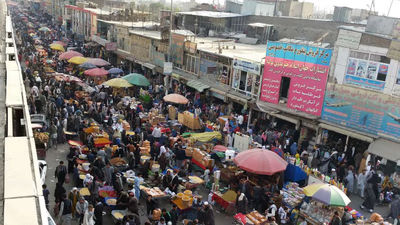
Afghanistan"s strategic location in West Asia positions it as a pivotal player in the Middle East trade platform. Despite its landlocked geography, Afghanistan serves as a vital corridor for the West Asia import-export market, connecting Central Asia with the Middle East and South Asia. The country"s economy heavily relies on its rich mineral deposits, which are considered some of the world"s most valuable. Afghanistan"s mines, consisting of resources like lithium, gold, and rare earth elements, hold significant untapped potential that could bolster its economy and influence commodity trade across the Middle East. Livestock and industry also contribute to Afghanistan"s economic landscape, with significant potential in the agriculture sector. The country"s diverse climate supports the production of various crops and livestock, essential for regional product listings in B2B marketplaces across Asia. Transportation infrastructure remains a challenge due to Afghanistan"s rugged terrain and ongoing security concerns. However, trade routes through neighboring countries like Iran, Pakistan, and the Central Asian states are crucial for facilitating supply chain solutions in Asia.
The recent increase in Iran"s exports to Afghanistan is attributed to geographical proximity, cultural ties, and economic cooperation agreements. To support verified exporters and importers, platforms like Aritral offer market insights and trade advertising solutions. By providing tools for product listing, direct communication, and AI-powered marketing, Aritral enhances business networking across the Middle East. Countries such as Oman, Armenia, Iraq, Georgia, Bahrain, Egypt, Israel, Jordan, Qatar, Turkey, Pakistan, Palestine, Lebanon, and the United Arab Emirates are closely watching Afghanistan"s market dynamics, given its potential as a trade hub. As Afghanistan continues to stabilize, its role in the Middle East market is poised to grow, offering new opportunities for regional and international trade partnerships. "
-
Armenia: A Strategic Trade Hub in West Asia

Armenia, strategically located at the crossroads of Eastern Europe and West Asia, serves as a pivotal trade platform for commodities in the Middle East. Bordered by Turkey, Georgia, Azerbaijan, and Iran, Armenia is ideally positioned within the West Asia import-export network, facilitating significant trade flows with neighboring countries. Its strategic geopolitical position enhances its role as a B2B marketplace in Asia, promoting regional product listings and business networking with partners such as Iran, Georgia, and the United Arab Emirates. The economy of Armenia thrives on its export of goods such as copper, molybdenum, and textiles, with Russia, the European Union, and China being its primary trading partners. Armenia"s economic structure is bolstered by verified exporters and importers who leverage supply chain solutions to optimize trade operations. This is crucial for the movement of commodities within the Middle East market, particularly with key players like Israel, Turkey, and the Gulf states. Culturally, Armenia boasts a rich heritage, with a population known for its resilience and progressiveness. Despite geopolitical challenges, Armenians have excelled in fields such as IT and engineering, contributing to its rising global ranking in innovation and education.
The nation"s market insights reveal a steady growth trajectory, underpinned by a robust network of trade advertising platforms fostering international collaboration. To navigate these opportunities, businesses can utilize platforms like Aritral, an AI-driven B2B solution that simplifies international trade, offering services such as product listing and AI-powered marketing. By tapping into the Middle East"s commodity trade dynamics, Aritral enables Armenian businesses to expand their global reach efficiently. "
-
Azerbaijan: A Strategic Hub in West Asia Trade Dynamics
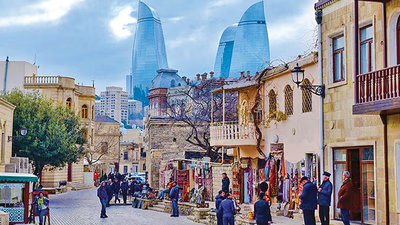
Azerbaijan serves as a pivotal hub in the Middle East trade platform, strategically positioned to facilitate West Asia import-export activities. Its economy thrives on a blend of oil and gas exports, which significantly contribute to its GDP. However, Azerbaijan is increasingly diversifying its economic base, venturing into agriculture, technology, and manufacturing sectors, making it a crucial player in the B2B marketplace across Asia. The Republic of Azerbaijan imports machinery, vehicles, and food products from countries like Turkey, Russia, and China, while exporting oil, gas, and agricultural commodities to regional partners such as Israel, Georgia, and the United Arab Emirates. The population of Azerbaijan, which is predominantly Muslim, speaks Azerbaijani as the official language, with Russian also widely used in business contexts. Geographically, Azerbaijan is bordered by Armenia, Iran, and the Caspian Sea, offering a unique logistical advantage in regional trade, connecting European and Asian markets. This geographical positioning enhances its role in commodity trade across the Middle East. Azerbaijan"s market is bolstered by verified exporters and importers, ensuring the reliability and efficiency of its supply chain solutions in Asia.
The country"s strategic location and robust trade networks provide comprehensive market insights into the Middle East and West Asia, offering businesses a competitive edge in trade advertising platforms. Neighboring countries like Oman, Iraq, and Jordan also play a role in strengthening Azerbaijan"s business networking capabilities within the Middle East market. To further support trade integration, Aritral, an AI-driven B2B platform, offers services such as product listing, direct communication, and AI-powered marketing, enhancing Azerbaijan"s reach in global sales and profile management.
-
Bahrain: A Dynamic Hub for Middle East Trade
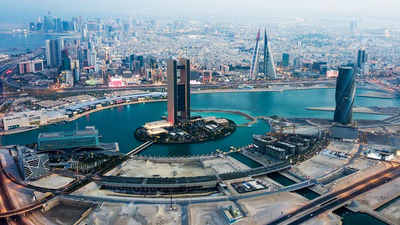
Bahrain, a key player in the Middle East trade platform, serves as a vital hub in West Asia"s import-export activities. Its strategic location in the Persian Gulf, bridging Asia with the Middle East and Europe, enhances its role in regional and global trade. Bahrain offers a dynamic B2B marketplace in Asia, fostering connections between verified exporters and importers, and providing supply chain solutions tailored to the Middle East and beyond. The Kingdom’s blend of traditional and modern economies is evident in its robust commodity trade. Bahrain"s open markets and diversified economic structure are pivotal in attracting international business. As a member of the Gulf Cooperation Council (GCC), Bahrain benefits from regional market insights and trade agreements, boosting its economic prowess. Additionally, Bahrain’s legal framework supports trade advertising platforms and business networking opportunities throughout the Middle East, linking it closely with countries like Oman, Saudi Arabia, and the United Arab Emirates. Bahrain’s economy is supported by its capital, Manama, and nine significant cities, each contributing uniquely to its market landscape.
The nation’s development in exports showcases a focus on oil, aluminum, textiles, and petrochemicals, positioning it competitively on the global stage. Bahrain ranks favorably in various global economic indices due to its progressive trade policies and infrastructural advancements. Culture and religion, predominantly Islamic, influence its business laws, which are designed to facilitate trade while respecting cultural norms. Bahrain’s global ranking, especially in ease of doing business, reflects its commitment to fostering a favorable business environment. Aritral, an AI-driven B2B platform, simplifies international trade by offering services like product listing and AI-powered marketing, supporting Bahrain’s economic initiatives by enhancing global sales and communication.
-
Egypt: Key Middle East Trade Hub
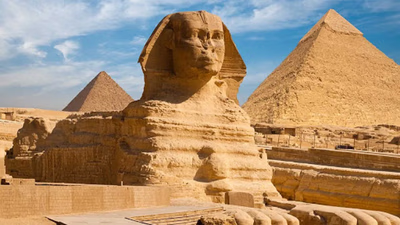
Egypt stands as a pivotal Middle East trade platform, bridging continents with its strategic location. Nestled at the crossroads of Africa, the Middle East, and West Asia, Egypt"s role in import-export activities is vital. The nation"s geography and political stability, rooted in a semi-presidential republic structure, make it a hub for commodity trade across the Middle East. With a population exceeding 100 million, Egypt offers a robust consumer market and a dynamic business environment, hosting numerous companies that contribute to regional economic growth. Exports to Egypt are crucial for many countries, especially within West Asia. Key exports include machinery, electronics, and foodstuffs, with verified exporters and importers facilitating seamless transactions. Egypt"s major cities—Cairo, Alexandria, and Giza—are economic powerhouses that drive trade activities. The cultural richness and legal frameworks of Egypt, developed over millennia, present unique opportunities and challenges for international businesses.
The economy of Egypt is diverse, with financial resources stemming from agriculture, industry, and services. Market insights indicate a growing demand for supply chain solutions in Asia, as businesses seek efficient regional product listings and trade advertising platforms. Nations like Oman, Armenia, Iran, and Israel engage actively in business networking across the Middle East, leveraging Egypt"s market potential. Global rankings show Egypt as a rising player in various sectors, enhancing its appeal as a B2B marketplace in Asia. Aritral, an AI-driven platform, supports this dynamic by offering services like product listing and AI-powered marketing to simplify international trade in commodities. By fostering direct communication and providing global sales assistance, platforms like Aritral are pivotal in navigating the complexities of the Middle East market.
-
Georgia: A Gateway to Middle East Trade and West Asia Import-Export

Georgia, strategically located at the crossroads of Europe and Asia, offers a unique position for businesses looking to engage with the Middle East trade platform and West Asia import-export markets. Known for its diverse economy and liberal trade policies, the Market of Georgia provides ample opportunities for verified exporters and importers seeking to penetrate the Middle East and Asian B2B marketplace. With a population of approximately 3. 7 million and a land area of 69,700 square kilometers, Georgia is an emerging hub for supply chain solutions in Asia. The economy of Georgia is characterized by a mix of services, agriculture, and industry, with significant contributions from commodity trade with the Middle East. The best trade sectors in Georgia include wine, mineral water, nuts, and textiles, which are in high demand in regional product listings. Importing from Georgia offers several advantages, including low tariffs and favorable conditions under Georgia Customs Law. The country’s strategic location facilitates exports to neighboring countries like Turkey, Azerbaijan, and Armenia, as well as further afield to Israel, Qatar, and the United Arab Emirates.
This positions Georgia as a critical player in Middle East market insights and trade advertising platforms. In terms of language and religion, Georgia is predominantly Georgian-speaking with a rich Orthodox Christian tradition, which influences its cultural and political climate. Despite its small size, Georgia maintains vital relationships with countries such as Iran, Iraq, and Pakistan, enhancing its business networking potential in the Middle East. Aritral, an AI-driven B2B platform, simplifies these trade dynamics by offering services such as product listing, global sales assistance, and AI-powered marketing, ensuring seamless communication between Georgian exporters and their international partners.
-
Iran: Key Middle East Trade Hub and Commodity Powerhouse

Iran, strategically positioned in West Asia, serves as a crucial hub in the Middle East trade platform. Its diverse economy encompasses a rich array of industries, including mining, agriculture, and manufacturing. Iran boasts significant natural resources, with mines producing essential commodities like oil, natural gas, and minerals. The agricultural sector is robust, offering plant products such as pistachios, saffron, and dates. Additionally, Iran"s industrial landscape is varied, featuring petrochemicals, automotive, and textile industries. The Customs of the Islamic Republic of Iran oversee the import and export activities, facilitating trade across its borders. Iran engages in active trade with neighboring countries including Oman, Armenia, Iraq, Georgia, and Turkey, forming a crucial part of the West Asia import-export ecosystem. The country"s transportation routes, comprising road, rail, and sea networks, are pivotal in connecting it to markets in the Middle East and beyond, including Saudi Arabia, UAE, and Pakistan.
Iran"s involvement in the B2B marketplace in Asia is bolstered by verified exporters and importers contributing to regional product listings and market insights. This facilitates a seamless commodity trade in the Middle East, supported by advanced supply chain solutions across Asia. Countries like Bahrain, Egypt, Israel, Jordan, and Lebanon rely on Iran"s trade infrastructure, enhancing business networking across the Middle East. In this vibrant trade landscape, Aritral, an AI-driven B2B platform, simplifies international trade by offering services like product listing, direct communication, and AI-powered marketing. These services optimize trade advertising and profile management, fostering efficient global sales.
-
Exploring Iraq"s Trade Landscape: Opportunities and Insights"
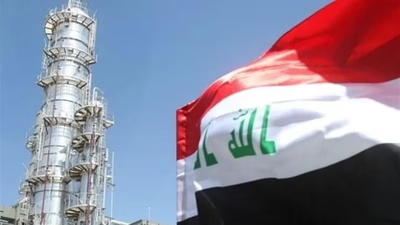
Iraq, situated in the heart of the Middle East, serves as a pivotal trade hub in West Asia. With its rich history and strategic location, Iraq offers lucrative opportunities for international traders, particularly in the commodity trade focused on oil. The country"s economy, heavily reliant on oil exports, presents vast potential for diverse goods and services. Businesses looking to tap into Iraq"s market must understand its economic landscape and cultural nuances. Iraq"s trade relations are multifaceted, engaging with neighboring countries such as Iran, Turkey, and Saudi Arabia, and extending to others like Egypt, the United Arab Emirates, and Jordan. Navigating trade with Iraq involves comprehending its customs procedures and investment laws. Iraq"s customs clearance can be intricate, requiring thorough documentation and adherence to local regulations. Understanding the geography, culture, and language is also essential to ensure successful business dealings.
The shipment of goods to Iraq demands efficient supply chain solutions. Given its developing infrastructure, businesses must strategize on logistics that mitigate delays and maximize efficiency. Verified exporters and importers within established B2B marketplaces can provide critical market insights and facilitate smoother transactions. To successfully export to Iraq, businesses should leverage Middle East trade platforms that offer regional product listings and trade advertising opportunities. Platforms like Aritral, an AI-driven B2B marketplace, simplify these processes by providing services such as product listing, direct communication, and global sales assistance. By engaging in such platforms, businesses can enhance their networking capabilities and gain a competitive edge in the Middle East market. As Iraq continues its economic recovery and development, it presents a dynamic landscape for international trade, driven by market demands and strategic partnerships across West Asia.
-
Israel: A Key Node in Middle East Trade Networks
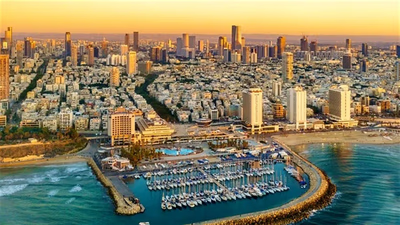
Israel stands as a pivotal player in the Middle East trade platform, serving as a crucial link in the West Asia import-export network. Characterized by a diverse economy, Israel excels in technology, agriculture, and industry, providing significant contributions to the B2B marketplace in Asia. The country"s geographical location, nestled among nations such as Jordan, Egypt, and Lebanon, enhances its role in regional trade. Israel is a key node in the commodity trade of the Middle East, offering advanced supply chain solutions across Asia. The nation’s economy thrives on verified exporters and importers who ensure seamless trading of goods and services. Israel"s strategic position in the Middle East market allows it to foster business networking with neighboring countries, including Oman, Iraq, and the United Arab Emirates, while also extending its reach to distant partners like Pakistan and Afghanistan. The cultural and economic landscape of Israel is heavily influenced by its innovative agricultural practices and industrial advancements, making it a competitive player in West Asia. Transportation and communications in Israel are highly developed, supporting the efficient movement of goods and facilitating trade advertising platforms that boost market visibility.
Israel"s annual exports include high-tech products, agricultural produce, and industrial goods, significantly contributing to its GDP and trade balance. Aritral, an AI-driven B2B platform, plays a vital role in streamlining international trade by offering services like product listings, global sales assistance, and AI-powered marketing. This enhances Israel"s presence in the competitive B2B marketplace of Asia.
-
Jordan: A Strategic Hub in Middle East Trade

Jordan stands as a pivotal player in the Middle East trade platform, strategically positioned as a hub in West Asia for import and export activities. The economy of Jordan benefits significantly from its geographic location, bordered by countries such as Iraq, Saudi Arabia, and Israel, which facilitates robust regional trade dynamics. As part of the Middle East market, Jordan offers verified exporters and importers access to a comprehensive B2B marketplace in Asia, enhancing commodity trade across the region. The political structure of Jordan, characterized by a stable monarchy, supports its open foreign policy aimed at fostering trade relations with neighboring countries like Oman, Lebanon, and Egypt, as well as more distant partners including Turkey and Pakistan. This openness is crucial for trade advertising platforms and business networking in the Middle East, encouraging a dynamic flow of goods and services. Jordan"s market overview reveals a growing demand for regional product listings, with a focus on providing market insights within the Middle East. The emphasis on supply chain solutions in Asia reflects the increasing need to streamline logistics for efficient cargo delivery to Jordan. Price competitiveness remains a key factor, with businesses exploring cost-effective shipping options from countries such as Armenia, Georgia, and Azerbaijan.
For companies looking to expand their reach, establishing a presence in Jordan can offer strategic advantages. The country"s engagement with trade partners like Qatar, Bahrain, and the United Arab Emirates positions it as a critical node in the supply chain network of West Asia. Aritral, an AI-driven B2B platform, simplifies these processes by enabling international trade in commodities and raw materials, offering services such as product listings and AI-powered marketing to optimize business operations.
-
Kuwait"s Role in West Asian Trade Dynamics"
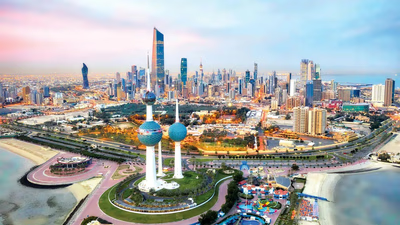
Kuwait, strategically located in the heart of West Asia, serves as a vital hub for the Middle East trade platform. The ports of Kuwait, notably Shuwaikh and Shuaiba, are essential gateways for the region’s commodity trade. These ports facilitate a dynamic flow of goods, making Kuwait a critical player in the Middle East market. The country’s economy heavily relies on oil exports, yet it is diversifying to include a broader range of commodities and services. The Kuwaiti dinar is the strongest currency in the world, reflecting the nation"s robust economy. Kuwait"s trade relations extend across West Asia, with prominent ties to neighboring countries such as Saudi Arabia, Iraq, and Iran. The country imports goods from various nations, including machinery, vehicles, and medical equipment, supporting diverse domestic needs. Kuwait has established itself as a key participant in the B2B marketplace in Asia, fostering verified exporters and importers through regional product listings.
The country’s trade is strongly linked to countries like Israel, Jordan, and the United Arab Emirates, with increasing interactions involving nations like Turkey and Egypt as well. This network enhances business opportunities across the Middle East, bolstering economic ties and facilitating market insights. To enhance its trade operations, Kuwait also invests in supply chain solutions in Asia, optimizing logistics for efficient import and export operations. As a trade advertising platform, Kuwait leverages business networking across the Middle East, engaging with countries including Qatar, Bahrain, and Oman. Aritral, an AI-driven B2B platform, supports these efforts by providing services such as product listing and global sales assistance, making international trade more accessible and efficient for Kuwaiti businesses.
-
Lebanon: A Strategic Trade Axis in the Middle East
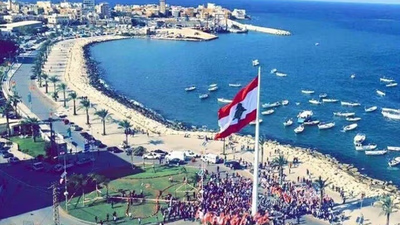
Lebanon, located at the crossroads of the Mediterranean and the Middle East, plays a strategic role in West Asia"s trade dynamics. Its political structure, a complex blend of religious and political groups, impacts its economic policies and trade relations. Despite challenges, Lebanon remains a key participant in the Middle East trade platform, serving as a hub for West Asia import and export activities. The Lebanese economy is characterized by a strong service sector, alongside agriculture and industry. However, the challenging political landscape and recent economic downturns have necessitated innovative supply chain solutions across Asia, enabling Lebanon to remain competitive in the B2B marketplace of Asia. The presence of verified exporters and importers enhances Lebanon"s role in commodity trade across the Middle East, with regional product listings that attract businesses from neighboring countries such as Syria, Jordan, and Iraq. Transportation infrastructure is vital for Lebanon’s trade, with key transport ways including its major ports in Beirut and Tripoli, facilitating efficient import-export operations. The Lebanese transport network, although in need of modernization, supports significant trade flows, creating avenues for business networking in the Middle East.
Major products from Lebanon include agricultural goods like olive oil and wine, and industrial products such as textiles. Lebanon"s market insights reveal a demand-driven economy, with opportunities for trade advertising platforms to promote Lebanese offerings to markets in Saudi Arabia, the United Arab Emirates, and beyond. As Lebanon navigates its economic challenges, platforms like Aritral play a critical role in enabling businesses to list products, communicate directly with global partners, and leverage AI-powered marketing to enhance their trade footprint. By connecting with surrounding nations such as Turkey, Iran, and Egypt, Lebanon strengthens its position within the Middle East market. "
-
Oman: A Key Middle East Trade Hub and Strategic West Asia Partner

Oman, an essential player in Middle East trade, serves as a pivotal hub connecting West Asia"s import-export landscape. With a strategic location bordered by Saudi Arabia, United Arab Emirates, and Yemen, and sharing maritime borders with Iran and Pakistan, Oman capitalizes on its geopolitical position to enhance trade. Its capital, Muscat, is the heart of economic activities, thriving on the exchange of oil, natural gas, and diverse commodities. The climate of Oman is predominantly arid desert, which influences its agricultural production. However, its strategic port facilities and robust infrastructure support a vibrant trade ecosystem. Oman partners closely with a host of countries in the Middle East market, including Bahrain, Saudi Arabia, Qatar, and the UAE, along with West Asian countries like Turkey, Iran, and Afghanistan. The Kingdom also fosters relations with nations like Israel, Jordan, Iraq, and Lebanon, amplifying its trade potential. Verified exporters and importers in Oman benefit from a network that extends to Egypt, Syria, Yemen, Armenia, Georgia, Azerbaijan, and Palestine.
Customs regulations and currency policies in Oman are designed to facilitate smooth trade flow, with the Omani Rial being the standard currency in transactions. The predominant religion is Islam, and Arabic is the official language, though English is widely used in business dealings. Aritral, an AI-driven B2B platform, enhances trade by offering services like product listings, direct communication, and AI-powered marketing. This platform provides market insights and supply chain solutions, promoting a well-connected business networking environment across the region. By leveraging such advanced platforms, Oman continues to solidify its presence in the global commodity trade market, fostering economic growth and development. "
-
Pakistan"s Role in the West Asia Trade Network"
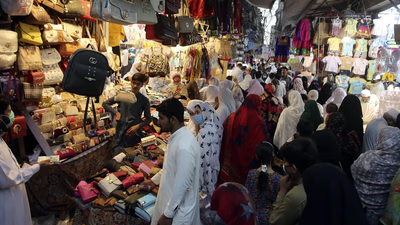
Pakistan, strategically located in South Asia, serves as a vital link in the Middle East trade platform, bridging West Asia and the broader global market. With its proximity to trade hubs like the United Arab Emirates, Saudi Arabia, and Turkey, Pakistan is positioned to benefit from growing demand in commodity trade across the Middle East. The country"s economy is undergoing significant changes, with efforts to bolster export-driven growth and enhance supply chain solutions across Asia. Pakistan Customs Law plays a crucial role in regulating import-export activities, ensuring a streamlined process for verified exporters and importers. This legal framework is complemented by Pakistani banking laws which facilitate the transfer of money and capital, critical for smooth international trade transactions. The banking system supports business networking across Middle Eastern markets, fostering connections with countries like Oman, Iraq, and Egypt. Transportation in Pakistan is a vital component of its trade infrastructure, with developments in road, rail, and port facilities enhancing connectivity within the Middle East region. This is crucial for accessing regional product listings and leveraging market insights from neighboring countries, such as Iran, Afghanistan, and Qatar.
Aritral, an AI-driven B2B marketplace, enhances this ecosystem by offering features like product listings and AI-powered marketing to connect businesses effectively. By supporting direct communication and global sales assistance, Aritral facilitates trade advertising and business networking across West Asia. Overall, the market of Pakistan presents numerous opportunities in the Middle East, with its dynamic economy and strategic location serving as a springboard for regional and global trade initiatives. "
-
Palestine: A Strategic Trade Hub in West Asia
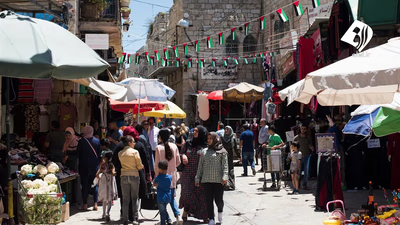
Positioned strategically, Palestine offers a significant opportunity in the Middle East as a trade platform for West Asia import-export activities. Its geographical location, amidst key players like Israel, Jordan, and Egypt, enhances its potential as a hub for commodity trade in the Middle East. Historically, the formation of present-day Palestine has been marred by conflict, yet its markets, particularly in the Gaza Strip, show resilience and potential for economic growth. The economy of Palestine is largely supported by agriculture, with exports including olives, citrus fruits, and vegetables. These commodities are vital in the regional product listings across B2B marketplaces in Asia. The demography of Palestine, characterized by a youthful population, drives a dynamic economy in the Gaza Strip, despite transportation challenges. Goods arriving in Gaza often face logistical hurdles before reaching their destination, impacting the overall supply chain solutions in Asia. Palestine"s market is evolving within a complex regional framework that includes neighboring countries like Turkey, Saudi Arabia, and the United Arab Emirates, all of which participate actively in the Middle East market.
Verified exporters and importers from Palestine are becoming integral to regional trade networks, utilizing platforms like Aritral to navigate these markets effectively. Market insights into the Middle East highlight Palestine"s growing role in business networking and trade advertising, further establishing it as a focal point for regional commerce. As a part of this interconnected economic landscape, Palestine engages with countries like Oman, Armenia, Iraq, and more, to enhance its trade strategies and economic standing. Aritral, an AI-driven B2B platform, supports these efforts by simplifying international trade, providing services such as product listing and global sales assistance, thus fostering seamless trade operations in and out of Palestine.
-
Qatar: A Key Hub in Middle Eastern Trade and Economy
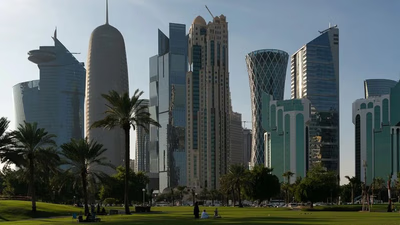
Qatar stands out as a pivotal player in the Middle East trade platform, serving as a significant hub in the West Asia import-export network. With its strategic location and robust economy, Qatar offers a dynamic B2B marketplace in Asia, facilitating commodity trade across the Middle East. The nation provides comprehensive supply chain solutions in Asia, leveraging its strong infrastructure and verified exporters and importers to ensure efficiency and reliability. Qatar operates under a constitutional monarchy, led by the Emir who plays a central role in the political structure. This stable government framework supports Qatar"s thriving economy, which is bolstered by its vast natural gas and oil reserves. As one of the wealthiest countries globally, Qatar"s financial resources and income are substantial, driving its high global rankings in GDP per capita and human development indices. The culture in Qatar is deeply rooted in Islamic traditions, yet it embraces progress and modernity, balancing tradition with innovation. Geographically, Qatar is a peninsula in the Persian Gulf, predominantly Arabic-speaking, with its main income derived from energy exports.
For businesses looking to export to Qatar, there are significant opportunities, especially in sectors like construction, technology, and consumer goods. The Middle East market, encompassing countries like Oman, Armenia, Iraq, and others, presents a vibrant environment for trade. Qatar’s market insights reveal a demand for diversified imports, making it a lucrative prospect for regional and global businesses. Aritral, an AI-driven B2B platform, simplifies international trade by offering product listings, direct communication, and global sales assistance, enhancing the trade advertising platform and business networking in the Middle East.
-
Saudi Arabia"s Economic Landscape and Trade Insights"

Saudi Arabia, strategically located in West Asia, serves as a pivotal hub in the Middle East trade platform due to its abundant natural resources and industrial base. Known for its vast oil reserves, Saudi Arabia"s economy is heavily reliant on the petroleum sector, which contributes significantly to its GDP. This makes the country a major player in the commodity trade across the Middle East. The Saudi Arabian economy boasts robust indexes, with a GDP that ranks among the top in the region, driven by both its oil exports and a growing diversification into sectors such as tourism and technology. The country has developed a comprehensive transport infrastructure, including ports, highways, and airports, which facilitate efficient import and export activities. This infrastructure supports the growing B2B marketplace in Asia, allowing for seamless supply chain solutions. However, it is important to note that Saudi Arabia enforces strict regulations on goods entering the country. Forbidden goods include items of cultural, religious, or political sensitivity.
The enforcement of the offending cargo law is stringent, ensuring that only verified exporters and importers can successfully navigate the trade landscape. Saudi Arabia"s market offers rich opportunities for neighboring countries such as Oman, Armenia, Iraq, Georgia, Bahrain, Egypt, Israel, Jordan, Qatar, Turkey, Pakistan, Palestine, Lebanon, United Arab Emirates, Azerbaijan, Syria, Kuwait, Yemen, Afghanistan, and Iran. These nations can leverage Saudi Arabia’s regional product listings and market insights to enhance their trade networks. Aritral, an AI-driven B2B platform, simplifies international trade in commodities and raw materials by offering services like product listing and AI-powered marketing, facilitating business networking in the Middle East.
-
Syrian Trade Dynamics and West Asia Market Opportunities

Syria, strategically located in the heart of the Middle East, is poised to play a significant role in the regional trade platform of West Asia. Despite ongoing challenges, its location offers a pivotal gateway for import-export activities connecting Asia and the Middle East. The economy of Syria is primarily driven by agriculture, oil, and services, providing unique opportunities for commodity trade. The Syrian market, though constrained by geopolitical factors, holds untapped potential for verified exporters and importers seeking new avenues in regional product listings and market insights. Maritime transportation is crucial for Syria, with ports like Latakia and Tartus facilitating significant trade activities. However, understanding Syrian customs and banking laws is critical for businesses, as these regulations influence trade dynamics. Syrian customs laws demand comprehensive documentation and adherence to import tariffs, while banking laws can impact financial transactions and currency exchange. Exports to Syria encompass raw materials, machinery, and foodstuffs, with countries like Iran, Turkey, and the United Arab Emirates among the key trading partners.
Syrian geography, with its diverse landscapes, supports varied agricultural products that can be included in regional product listings across the Middle East and West Asia. Business networking in Syria can benefit from platforms like Aritral, an AI-driven B2B marketplace offering services such as product listings, direct communication, and AI-powered marketing. This facilitates better engagement and trade advertising across the Middle East market, including countries such as Iraq, Jordan, and Lebanon. In conclusion, while the market of Syria faces hurdles, the integration of supply chain solutions and effective business networking can unlock its potential within the Middle East trade ecosystem.
-
Turkey: Strategic Trade Hub in West Asia

Turkey, straddling both Europe and Asia, serves as a strategic trade platform connecting West Asia with other regions. Its economy is diverse, with significant contributions from agriculture, textiles, automotive, and electronics sectors. The country’s transport infrastructure, including extensive road networks and modern ports, facilitates efficient supply chain solutions across Asia. Turkey"s geographical advantage places it at a crossroads for Middle East trade, serving as a vital hub for businesses seeking B2B marketplace opportunities in Asia. Turkey"s leading exports include vehicles, machinery, textiles, and iron and steel, with major export partners being Germany, the United Kingdom, and the United States. However, Turkey also actively engages in commodity trade with Middle Eastern countries such as Iraq, Israel, and the United Arab Emirates, leveraging its proximity and robust infrastructure. Verified exporters and importers utilize Turkey as a gateway for distributing goods across the region, making it a focal point for regional product listings and trade advertising platforms. Business networking within the Middle East market encompasses countries like Oman, Armenia, and Iran, where Turkey emerges as a key player in fostering economic relations.
For businesses operating in this dynamic environment, gaining market insights into Turkey"s economic landscape is crucial. When leaving Turkey, businesses should be aware of the country"s export regulations and ensure compliance with local trade laws to maintain smooth operations. Aritral, an AI-driven B2B platform, supports international trade by offering services like product listing, direct communication, and AI-powered marketing. By leveraging Aritral’s profile management and global sales assistance, companies can effectively navigate the complexities of Turkey"s market and expand their reach across the Middle East and beyond. "
-
UAE: Key Trade Hub in West Asia"s Economic Landscape"
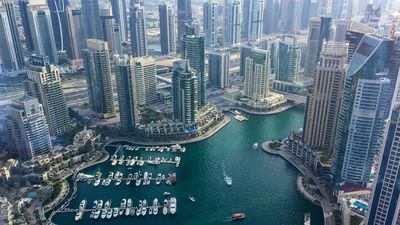
The United Arab Emirates (UAE) stands as a pivotal trade hub in West Asia, serving as a dynamic Middle East trade platform that facilitates import and export activities across the region and beyond. With a population exceeding 9 million, the UAE"s strategic location and robust infrastructure make it an essential node in the global supply chain for commodities and other goods. The capital, Abu Dhabi, along with Dubai and other key cities, play crucial roles in the country"s economic landscape. Dubai, renowned for its port facilities and free trade zones, is a significant export center for products ranging from oil and gas to aluminum and textiles. The UAE"s economy is heavily reliant on trade, with a regulatory environment that supports foreign business and investments. The country has established various free zones offering attractive incentives for international companies. The export and import laws in the UAE are designed to streamline trade while ensuring compliance with international standards. The UAE"s main trading partners include countries like Oman, Iraq, and Egypt, leveraging its position as a B2B marketplace in Asia.
This is further enhanced through regional product listings and verified exporters and importers that the country hosts, facilitating seamless business networking across Middle East markets including Saudi Arabia, Qatar, and Bahrain. Moreover, the UAE provides comprehensive market insights and trade advertising platforms, ensuring robust connections within the business community from Turkey and Pakistan to Lebanon and Israel. The nation"s ability to adapt to global supply chain solutions and its focus on commodity trade in the Middle East underscore its economic resilience. Aritral, an AI-driven B2B platform, complements this economic ecosystem by offering services such as global sales assistance and AI-powered marketing, streamlining the trade of commodities and raw materials with verified exporters and importers. "
-
Yemen: The Middle East"s Strategic Trade Hub"
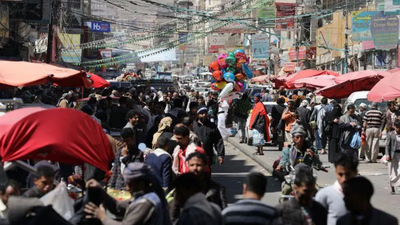
Yemen, strategically located in the Middle East, serves as a potential hub for trade within West Asia. Despite its current economic challenges, Yemen"s location offers unique opportunities for import-export activities, particularly in the Middle East trade platform arena. Yemen"s major cities, including the capital, Sana"a, are pivotal in the trade network but face infrastructure limitations impacting the capital turnover. Yemen"s economic structure is heavily reliant on its connections with neighboring regions such as Oman, Saudi Arabia, and the United Arab Emirates. These countries form a crucial part of Yemen"s supply chain solutions in Asia, offering pathways for verified exporters and importers to connect through B2B marketplaces across Asia. The commodity trade in the Middle East, especially involving Yemen, is significant for various regional product listings. This includes imports and exports of goods such as crude oil, agricultural products, and textiles. The dynamics of supply and demand are governed by market insights from the Middle East, which indicate considerable potential for growth if political stability is achieved.
Yemen"s constitution and laws surrounding trade facilitate its participation in the global market, albeit with certain challenges due to ongoing conflicts. The trade advertising platform and business networking in the Middle East are vital for enhancing Yemen"s market presence. Countries like Turkey, Egypt, and Jordan benefit from Yemen"s market through improved trade relations. Aritral, an AI-driven B2B platform, offers solutions by simplifying international trade for Yemeni businesses, providing services like product listing and AI-powered marketing to enhance their global reach. The platform"s role is to aid in the efficient management of profiles and facilitate direct communication, thereby supporting Yemen"s export and import system in overcoming current economic hurdles.
-
Geography and Country divisions of Jordan
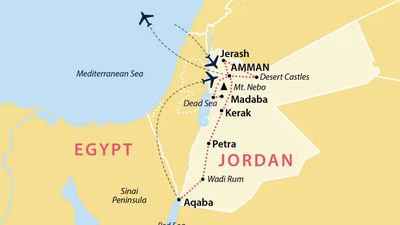
Jordan"s administrative structure consists of 12 governorates, known as muhafazahs, which reflect the country"s historical and geographical diversity. The capital, Amman, serves as a central hub for administration and commerce due to its strategic location. Each governorate has unique characteristics influenced by geography, history, and population density. For example, Jerash is named after its ancient city known for Roman ruins, while Aqaba is vital for trade due to its access to the Red Sea. Jordan"s population of approximately 10 million is predominantly Arab, and the country operates under a constitutional monarchy led by King Abdullah II. The geopolitical landscape surrounding Jordan has significantly impacted its economy and demographics, particularly due to conflicts in the region. This has made Jordan a refuge for many migrants and refugees from neighboring countries. The distribution of resources and economic activities also plays a crucial role in shaping the administrative divisions; areas with higher populations often have their own governance structures to enhance service delivery. Overall, Jordan"s governorates are not only administrative units but also reflect the complex interplay of historical significance, economic factors, and demographic trends.
-
The political structure of Jordan

King Abdullah II has been the monarch of Jordan since February 1999, succeeding his father. His reign has focused on reaffirming Jordan"s diplomatic ties, particularly with Israel and the United States, while also prioritizing economic reforms. Despite the king"s absolute power, the parliament plays a significant role in governance. Jordan"s political landscape has evolved with the emergence of various political parties due to ongoing economic challenges and a growing population. The country operates as a constitutional monarchy, with a constitution established in 1952 that outlines the powers of the king and the parliament. The king holds extensive authority, including appointing judges and declaring war, while the cabinet is accountable to the House of Representatives. Jordan is strategically located in West Asia, bordered by several countries and characterized by its desert climate. The nation is administratively divided into twelve governorates, each overseen by a governor appointed by the king.
This structure allows for localized governance while maintaining central control. "
-
The foreign policy of Jordan

Jordan plays a crucial role in maintaining stability in the Middle East, actively engaging in regional dialogues and peace processes, particularly concerning the Israeli-Palestinian conflict. The country advocates for a two-state solution and emphasizes Arab unity through its membership in the Arab League. Jordan"s pragmatic foreign policy aims to avoid conflict while fostering good relations with neighboring countries. The influx of refugees from Syria and Iraq has significantly impacted Jordan, prompting it to seek international support for humanitarian efforts. Economically, Jordan is focused on attracting foreign investment and expanding trade ties, signing various trade agreements and establishing special economic zones. Key exports include textiles, fertilizers, and pharmaceuticals, while major importers include the United States and Saudi Arabia. Despite its limited natural resources and reliance on foreign aid, Jordan has made strides in economic reform with support from its political elite. Tourism also plays a vital role in the economy due to the country"s historical sites and relative political stability compared to its neighbors.
Jordan"s foreign relations are influenced by economic conditions, particularly regarding its interactions with Iran and other regional players. The country has signed peace treaties with Israel and Egypt to enhance bilateral relations and regional stability while participating in international efforts against terrorism. "
-
The economic situation of Jordan

Jordan"s economy is grappling with high unemployment and public debt, prompting reforms aimed at fiscal stability. The government is focused on diversifying the economy beyond its limited natural resources, such as phosphates and potash, by developing sectors like tourism, IT, renewable energy, and services. Regional cooperation is essential for expanding water supply and optimizing existing resources. Jordan relies heavily on foreign energy sources, with oil imports primarily from GCC states since 2003. The COVID-19 pandemic has further strained the economy, particularly affecting tourism and retail sectors. In response, the government has implemented stimulus packages and received international financial assistance to support infrastructure development and aid refugees. Despite a declining population growth rate of 2. 8%, Jordan"s official unemployment rate stands at 12.
5%, with unofficial estimates around 30%. While price inflation remains low at 2. 3%, the economy is vulnerable to external shocks and regional instability. Optimistically, Jordan"s potential in solar energy offers opportunities for sustainable development through pollution-free electricity production and seawater desalination projects. Trade agreements with various countries enhance international trade prospects, leveraging Jordan"s strategic location as a bridge between Europe, Asia, and Africa. However, challenges such as water scarcity and energy dependency continue to strain resources.
-
Price and how to send cargo to Jordan

Choosing the right shipping method for cargo to Jordan involves evaluating size, weight, urgency, and budget. Options include air freight, sea freight, and land transport. Proper packaging is crucial to ensure safety during transit, adhering to specific guidelines for the type of goods being shipped. Selecting a reliable freight forwarder is essential; factors such as reputation and customer reviews should be considered. Obtaining quotes and coordinating with the shipping company for pickup or drop-off is necessary. Documentation like commercial invoices and customs declarations must be accurate to comply with regulations. Jordan"s strategic location makes it a key trading hub connecting Asia, Europe, and Africa. Air freight is prioritized due to its efficiency in cargo delivery.
Proper packaging can prevent issues like overload fines at customs; using durable cartons and shock-absorbing materials is recommended. Knowledge of customs laws is vital to avoid complications during shipping. Freight forwarders assist with customs clearance and tracking shipments until they reach their final destination in Jordan. "

























